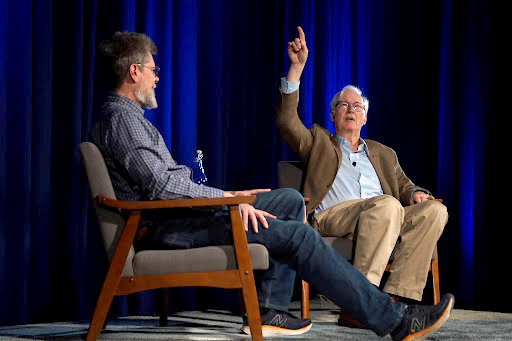
Award season is in full swing, and the movies getting the most recognition are part of a genre that rarely breaks records at the box office. Biopics, or biographical movies, have recently been premiering weekly, which is something most moviegoers aren’t used to. The top grossing movies consist of superheroes or are part of an action-packed series, but with “American Sniper” and “Selma” toping the charts some wonder if this may cause a shift in the type of movies Hollywood makes.
Albert Regalado, a sophomore film major at DePaul University, doesn’t think this will happen.
“Hollywood is just making the real world more exciting,” Regalado said.
According to Regalado, Hollywood uses facts as a framework for biopics but still includes fictional aspects that make the movie more dynamic and exciting, which makes them similar to what audiences already see in theaters.
Jacki Colombari, a freshman film student at DePaul, believes that the release of numerous biopics has to do with timing.
“A lot of the biopics are coming out right now because it’s Oscar season and the studios want these films to stick in the minds of academy voters,” she said.
If biopics aren’t any different than the action movies that are already expected in theaters and aren’t made for the entertainment of the general public, but instead for award winning, then what makes this genre something audiences want to watch?
According to Dan Pal, a film instructor at DePaul University, the interest in the genre has a lot to do with the construction of the film itself.
“(Biopics are) generally linear and feature trials, tribulations and triumphs. Audiences have a pretty good idea what to expect in terms of narrative development,” he said. “Thus, there’s a certain security in the genre.”
But for Ryan Croft, a freshman film major at DePaul, the interest in the genre is deeper than that.
“I think that audiences in general have always been interested in the idea of ‘this actually happened,’” he said. “It’s why we get a bunch of films … where the tagline says ‘based on a true story’, because people buy into a concept more if it actually happened.”
Still, though biopics are currently popular, audiences shouldn’t expect them to surpass the mass popularity of superhero or action movies.
“‘American Sniper’ targets more of an adult crowd, whereas superhero movies are generally for kids, preteens, teenagers and even adults,” Regalado said. “(Biopics,) at least right now, can’t move up to that standard because superhero movies do so well with every age group.”
Pal said audiences wouldn’t see a change in priorities unless studios decide to focus less on making a profit.
“Superhero/action movies still made up the majority of the top 10 highest grossing films of 2014,” he said. “Biopics are much lower on the list. Hollywood will have to see this reversed before they re-focus to real life stories.”
Regardless of this, Colombari said there’s more to a movie than just box office results.
“While superhero and action movies are widely popular upon release, they become dated very quickly, which is why there are so many remakes, as opposed to biopics and historical films, which better stand the test of time, due to their subject matter and the time commitment put into them.”













